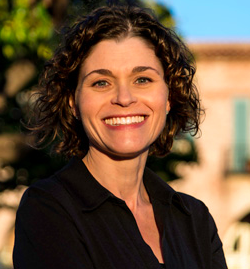Last Updated on August 23, 2022 by Laura Turner
Most people don’t associate being a premed with relaxation. Outsiders imagine your existence as a combination of serious studying, late nights in the lab, and an extensive cornucopia of community service and leadership roles. Let’s be honest: Those impressions are mostly right. Because of that, today I’ve decided to escape my usual role as a professional medical school admissions advisor to shine a bright light on some recommended premed, non-science reading. If you dutifully want to balance your “pleasure” reading with more utilitarian medical school admissions advice, please see my recent Student Doctor Network piece, “Ten Ways to Improve Your Medical School Application.”
I have several books to recommend to pre-meds, from inspirational “toughest job you’ll ever love” themes to resilient “don’t let them crush your soul” narratives. They range in style and content:
The Spirit Catches You and You Fall Down
This excellent book by Anne Fadiman was published in 1997 and promptly won the National Book Critics Circle Award for Nonfiction, among other accolades.
The book chronicles the U.S. medical experience of a Laotian Hmong patient and her family, showcasing the twisted miscommunications between that patient’s clan on the one hand, and her California doctors on the other. The patient’s family and the physicians suffer from such extensive misunderstanding that the patient’s condition worsens steadily. This is a compelling story and a sobering reminder to all medical caregivers that despite one’s best intentions to promote patient health, ignorance of cultural perceptions can jeopardize the doctor-patient relationship. I would describe this as a wonderful exploration of medical anthropology.
This is a Soul: The Mission of Rick Hodes
This nonfiction book chronicles the work of Dr. Hodes, an American physician who has lived in Ethiopia for over three decades assisting children with debilitating – oftentimes lethal – spinal problems (frequently tuberculosis-related). The writing itself is fair; its utility lies in showcasing Dr. Hodes, who has adopted multiple sick Ethiopian children. After graduating from Rochester Medical School and doing his internal medicine residency at Johns Hopkins, Hodes left a comfortable life in the States in the 1980s to become a relief worker during the Ethiopian famine. He received a Fulbright and later returned to work with a humanitarian group. He now lives in Ethiopia providing medical care to those in need.
Reading about Dr. Hodes will show you what terrible problems can be relieved with a medical degree and tremendous, self-sacrificing commitment.
The Checklist Manifesto
This Atul Gawande best-seller is also one of his most practical publications. Gawande does an excellent job of meticulously building evidence so that the reader understands the importance of a simple, yet elegant, clinical intervention – the checklist. He convincingly demonstrates that amazing technological improvements have yet to compensate for the persistence of human error, and showcases the importance of the checklist in mitigating some of those mistakes to reduce clinical complications and promote patient-centered care. I, personally, have implemented Gawande’s evidence-based recommendations about strict checklist use in my own clinical practice as an emergency physician, and it has helped me avoid errors and omissions.
Cutting for Stone
This fictional masterpiece by Dr. Abraham Verghese, Professor for the Theory and Practice of Medicine at Stanford University, follows twin brothers born to a nun and a surgeon at a mission hospital in Addis Ababa. The story is told by one of the twins, both of whom are born in Ethiopia under bizarre and terrifying circumstances and who suffer through the country’s political upheaval. The book has sufficient medical references that a premed would renew her interest in medicine while the prose is accessible enough to recommend to a layperson’s book club.
To me, Dr. Verghese is a true physician role model. He is able to practice and teach medicine at Stanford while writing a New York Times bestseller that showcases physicians who are empathic, but flawed (i.e., human), healers.
A Leg to Stand On
This book, about the author’s own illness experience, is written by the famous and recently-deceased neurologist Oliver Sacks. Many of us know Sacks’ popular works (The Man Who Mistook His Wife for a Hat, Awakenings), but this is a lesser-known book that has a lot to offer. In it, Sacks is the patient, and he describes being a physician in the uncomfortable sick role, exploring this vulnerable position. He explores his slow recovery from a mountain climbing accident, highlighting his temporary loss of self. It’s worth a read for the medical audience – to remind us of our vulnerability and to instill empathy.
The House of God
Frankly, I could not get through this book and can’t recommend it, but it is a classic. My husband, who is also a physician, thinks that – despite its shortcomings – it’s worth a read. He wrote the following: Writing under a pseudonym, a former intern at Beth Israel Medical Center (a Harvard-affiliated hospital) turns a cynical, often withering eye on the absurd experiences encountered by a group of high-achieving interns in their quest to become physicians and the perverse circumstances that conspire to rob them of their humanity. The narrative is clearly dated: It’s written from a 1970’s perspective where you can virtually smell the aftershave and envision the sideburns. For the brave reader willing to overlook the misogyny and ego, there are truths that still resonate and some references that some mentors may refer to as cultural touchstones when you hit the wards.
…Of course, there are thousands more books that are valuable for the premed audience, but this is a reasonable start. Here’s hoping that despite the burden of medical school admissions, a good book can remind us of what originally moved us to pursue the healing arts.
About the Author
Dr. Michelle Finkel, formerly an Assistant Residency Director and faculty member at Harvard Medical School, founded Insider Medical Admissions, an advising service for residency, fellowship, post-baccalaureate, dental and medical school admissions. Check out Dr. Finkel’s under-one-minute, stop motion Guru on the Go© videos on her Youtube site and like her on Facebook.
*Admissions Prep Week 2017 is Happening Now*
Make sure to check out the Insider Medical Admissions Forum and visit the rest of the Exhibition Forums to check out some excellent admissions prep products and services, take advantage of exclusive SDN member discounts, and enter to win free stuff!


